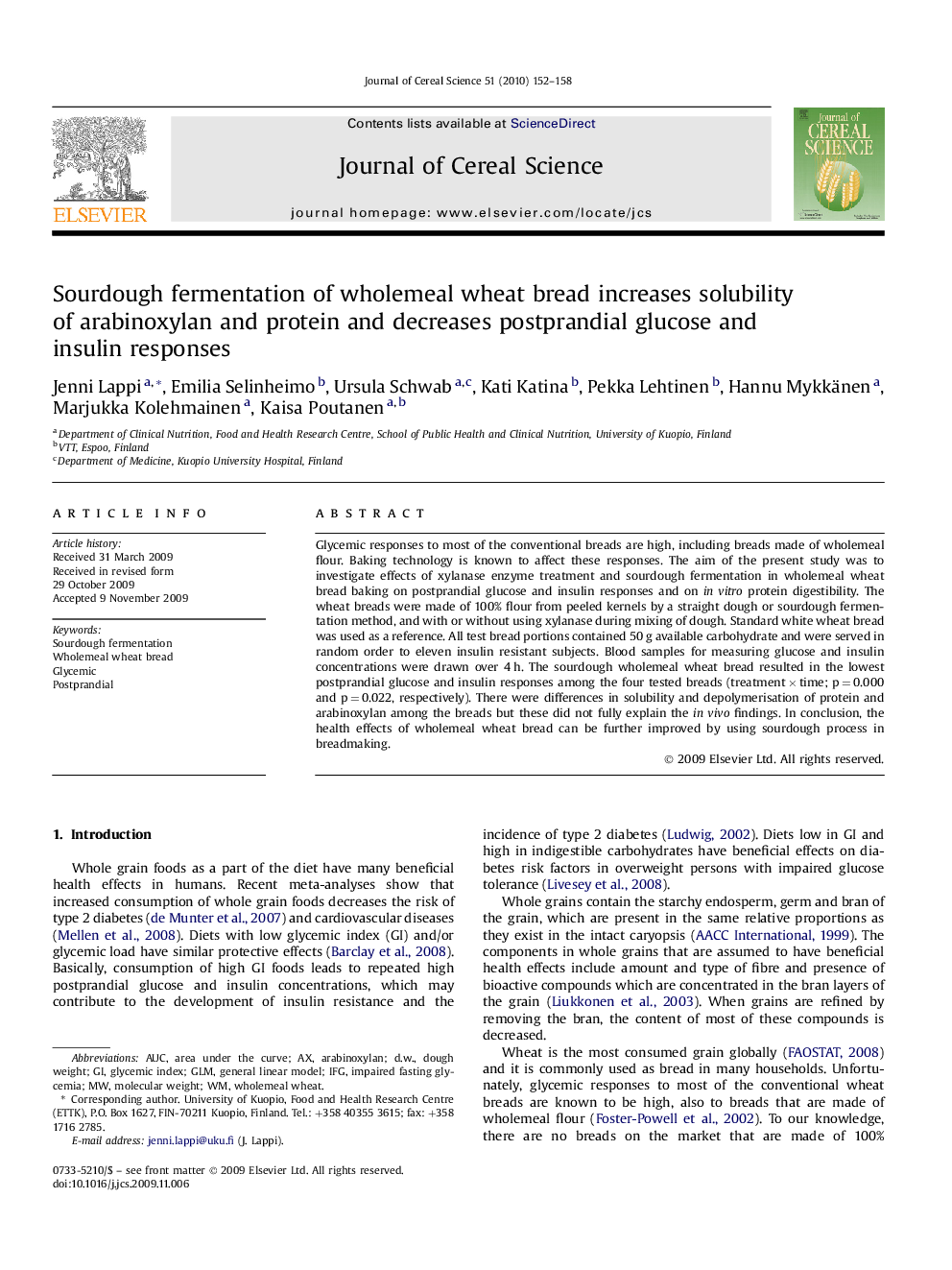| Article ID | Journal | Published Year | Pages | File Type |
|---|---|---|---|---|
| 4516254 | Journal of Cereal Science | 2010 | 7 Pages |
Glycemic responses to most of the conventional breads are high, including breads made of wholemeal flour. Baking technology is known to affect these responses. The aim of the present study was to investigate effects of xylanase enzyme treatment and sourdough fermentation in wholemeal wheat bread baking on postprandial glucose and insulin responses and on in vitro protein digestibility. The wheat breads were made of 100% flour from peeled kernels by a straight dough or sourdough fermentation method, and with or without using xylanase during mixing of dough. Standard white wheat bread was used as a reference. All test bread portions contained 50 g available carbohydrate and were served in random order to eleven insulin resistant subjects. Blood samples for measuring glucose and insulin concentrations were drawn over 4 h. The sourdough wholemeal wheat bread resulted in the lowest postprandial glucose and insulin responses among the four tested breads (treatment × time; p = 0.000 and p = 0.022, respectively). There were differences in solubility and depolymerisation of protein and arabinoxylan among the breads but these did not fully explain the in vivo findings. In conclusion, the health effects of wholemeal wheat bread can be further improved by using sourdough process in breadmaking.
